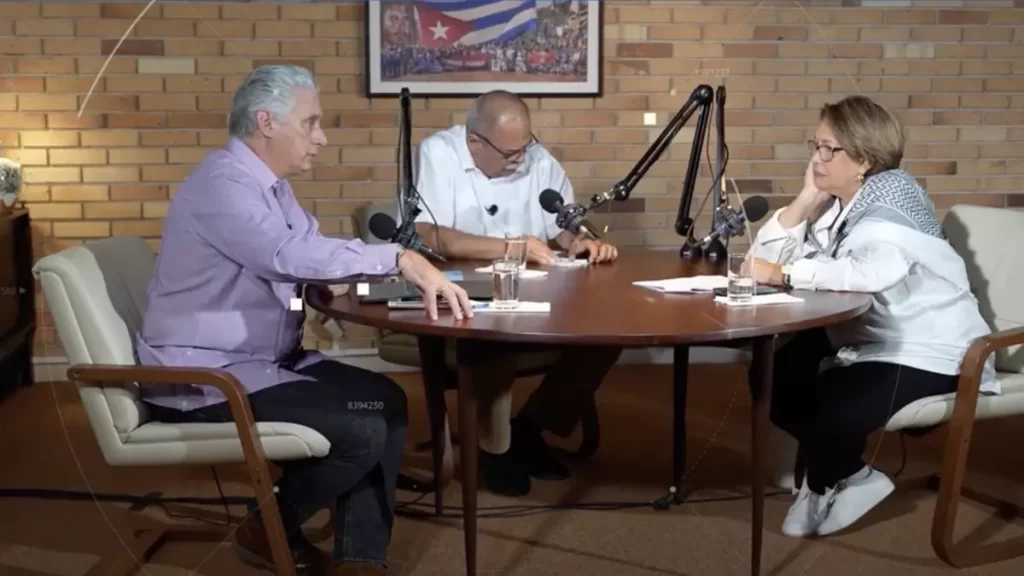
The central topic of the program was the energy situation in the country and the protests of March 17.
HAVANA TIMES – “A big movement is beginning, like the one that was made in the Energy Revolution,” Cuba’s Minister of Energy and Mines, Vicente de la O Levy announced in the first edition of the program Desde la Presidencia, a kind of Cuban “Hello President,” with Miguel Díaz-Canel as host and held from the Palace of the Revolution. The central theme of the first program was, of course, the energy situation in the country and the protests of March 17.
Regarding energy, some data was offered on the state of the deficit and possible solutions in the short and medium term. As to the demonstrations, in which, according to the president, there were “people who chanted counterrevolutionary slogans, some approached the commission of events with certain vandalism, some contempt, some disrespect for the authorities, especially because there is a lot of media pressure.”
These incidents, said the president, involved about 500 people in El Cobre, about “300 or 400” in Santiago de Cuba and “around 100 in the other place” – Bayamo, as can be deduced from the list he recited seconds before about the locations. He blamed the counterrevolutionaries presence to around 10 or 12 people, a figure that coincides with the number of detainees that the NGO Justicia 11J was able to document.
Díaz-Canel wanted to put the data into perspective and stressed that the eastern capital has more than a million inhabitants, although both he and his minister present said they understood “the discontent,” derived from an accumulation of food shortages and long blackouts. “The energy issue is a crosscutting issue in our economy,” granted De La O Levy, due to repercussions that transcend the lack of electricity itself and that involve the inability to pump of water and, therefore, its supply, and all industries, as well as food and medicine.
The leaders, interviewed by government journalist Arleen Rodríguez, summarized the origin of the problem as “energy persecution,” which prevents access to fuel that must be imported. “Cuban fuel is not enough for all of us,” said the minister, who put the national crude oil that was produced in times of the Soviet Union at one million tons of national crude compared to the 12 million that were received from Moscow, for a total consumption of 13 (in reality, Havana resold a part of the oil given away by Moscow on the international market).
“Today we are consuming eight million tons of fuel and producing three. We have to go look for five million tons of fuel in the international market and the cost for that is very high” (he did not refer to the crude oil that Venezuela and Mexico give away to Cuba).
To solve it, the most important thing is the conversion to solar announced last Wednesday by De la O himself, consisting of two contracts with Chinese companies that will install six solar parks per province,


